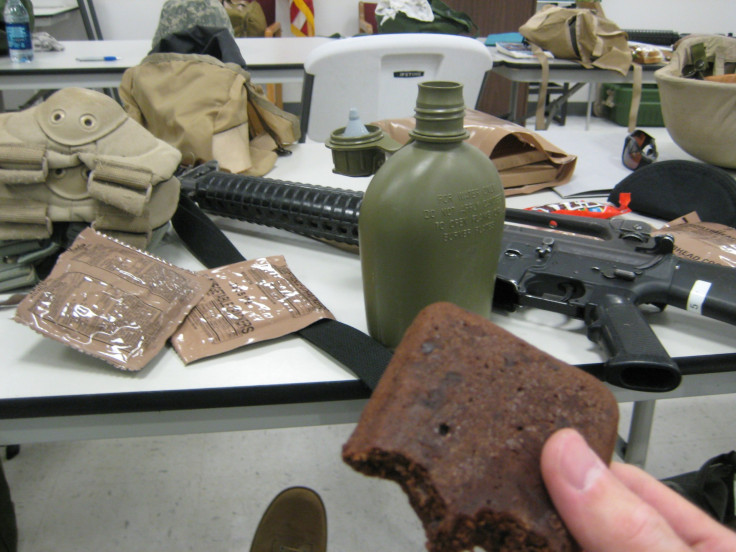US Army Seeks Volunteers To Eat Nothing But MREs To See What It Does To Gut Bacteria

Soldiers rip open their bags of meals ready-to-eat (MRE) and chow down each day they serve the United States, yet there's been very little research on how pre-packaged food affects their bodies. The U.S. Army's Institute of Environmental Medicine wants to change that by recruiting volunteers to eat nothing but MREs for 21 consecutive days to see what goes on inside their gut.
"There's a lot of interesting and new research looking at gut bacteria, and how those gut bacteria interact with the human body," the study's lead researcher Dr. J. Phillip Karl told Army Times. "Research will give us some idea of what we think will work. We'll go and test to make sure it's doing what I think it's doing, and at that point it starts to get incorporated into the rations."
For the study, Karl plans to collect data thorough questionnaires, alongside blood, urine, and fecal samples from 60 or so participants. He and his research team will then analyze levels of gut bacteria that may differ from someone following a normal, everyday diet. Researchers will examine what foods fuel certain types of gut bacteria and how to improve the meals by incorporating more nutrients, especially for the increasing vegan and vegetarian population.
Gut bacteria line the intestines and are essential to digest food, process vitamins, send signals to the immune system, and even make the small molecules that help your brain work.
"Interactions between the millions of bacteria living in our gut and what we eat is a very important factor in gut health, but we don't know how MRE foods interact with those bacteria to impact gut health," the study's research dietitian Holly McClung," wrote on the Army’s website. "Ultimately, discovering how eating MREs influences gut bacteria and gut health will help our efforts to continually improve the MRE."
Researchers at the Institute will also use this opportunity to test new MRE offerings, such as specialty beverage "Canteen Irish Cream Latte," main dish "Bunker Hill Burritos," and dessert "Fort Bliss-ful Pudding Cake" as part of their effort to keep the food flavorful. The study structure was designed after hearing troops complain about the mundane and bland offerings they receive during service.
MREs are formulated and packaged to withstand parachute drops from 1,250 feet, as well as boast a 3.5 year shelf life at 80 degree Farhenheit temperature or nine months of 100 degree conditions. But when eaten for a long period of time by millions of soldiers and recruits every year, MREs also have the potential to significantly impact their gastrointestinal system, especially while overseas with foreign foods that may be otherwise difficult to digest.
"We think we can manipulate the bacteria in a way that helps the bacteria fight foreign pathogens — things that could cause food-borne illness, for example," Karl said. "Oftentimes, war fighters are overseas and they eat something off the local economy that can cause [gastrointestinal] distress. Potentially, what we could do by increasing the amount of beneficial gut bacteria is to help prevent some of that."



























